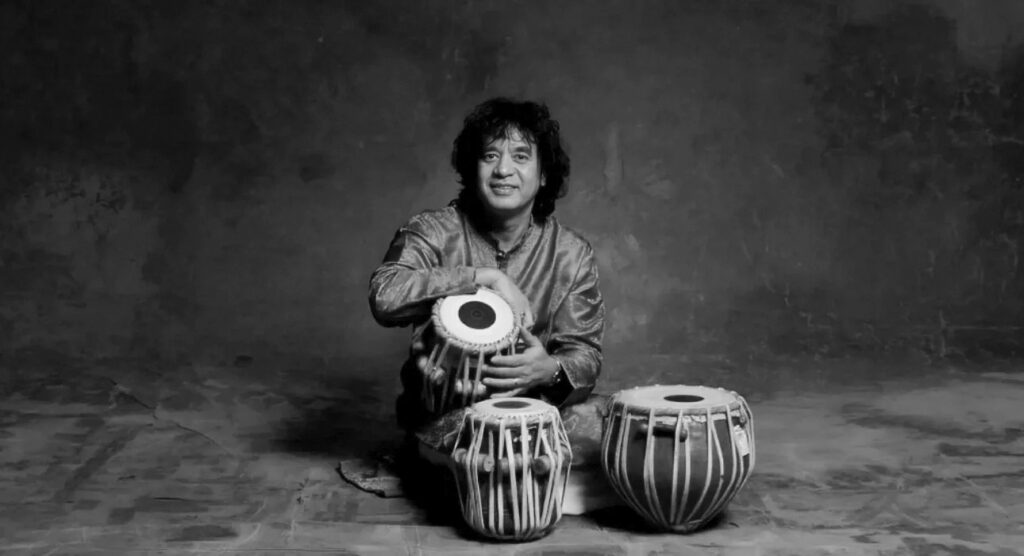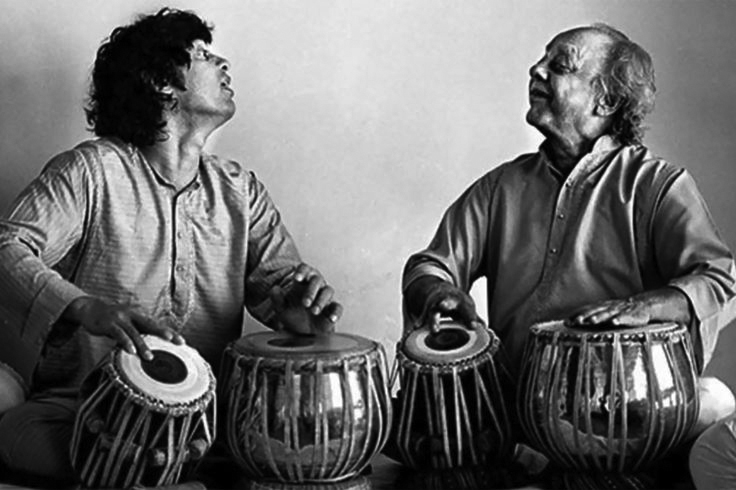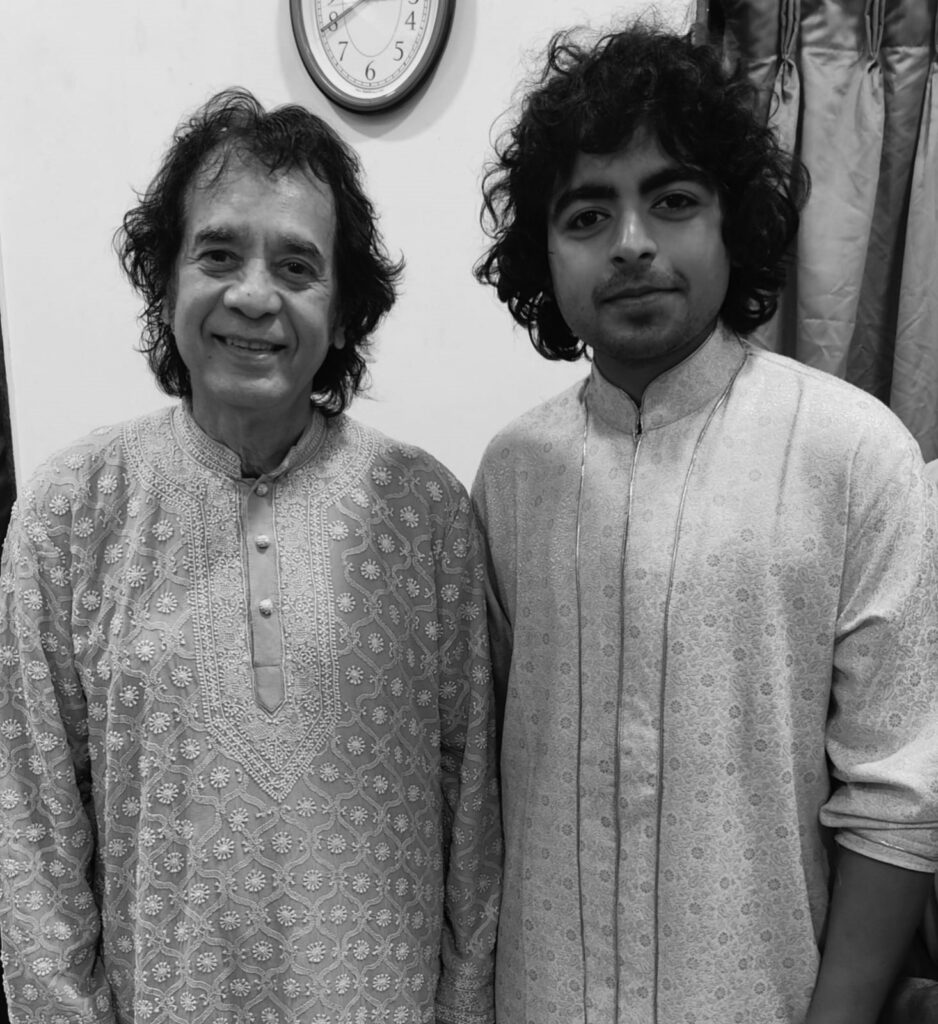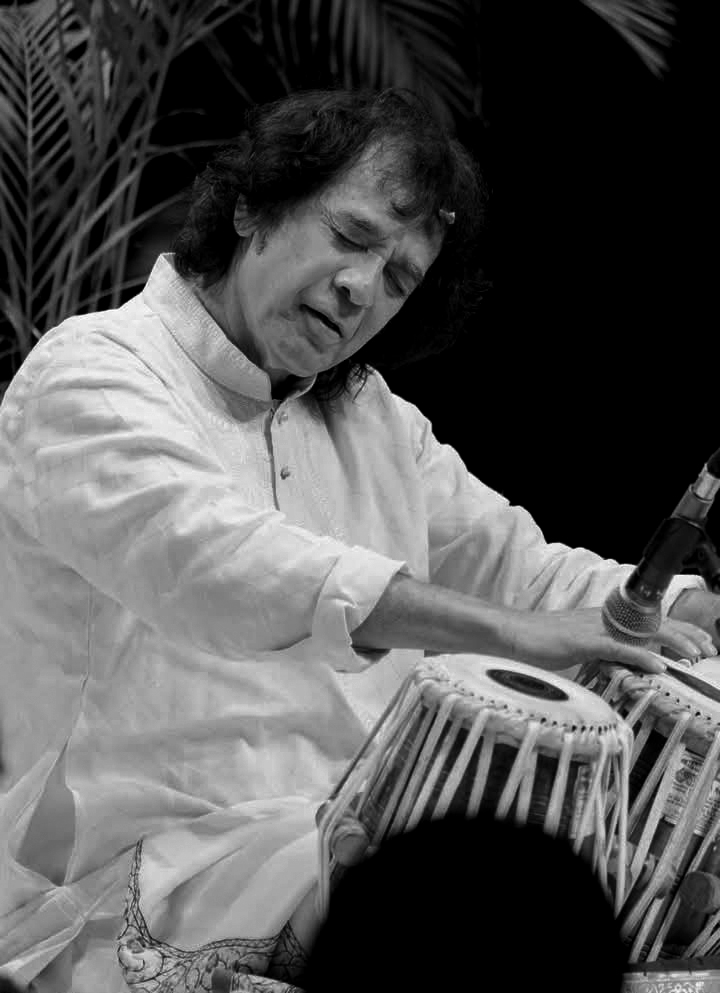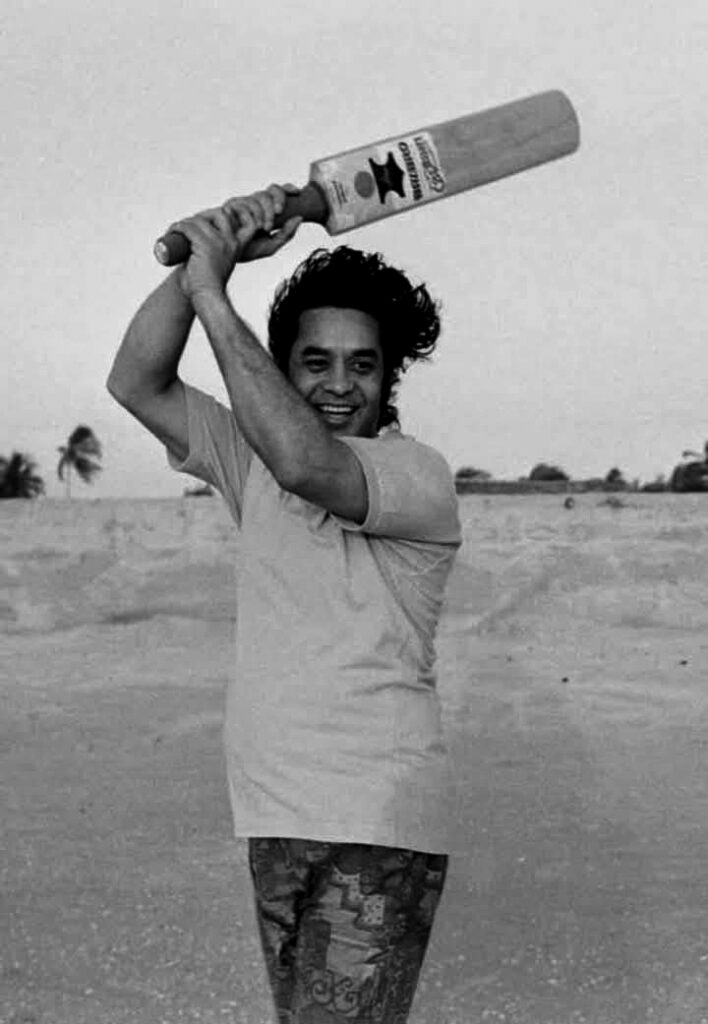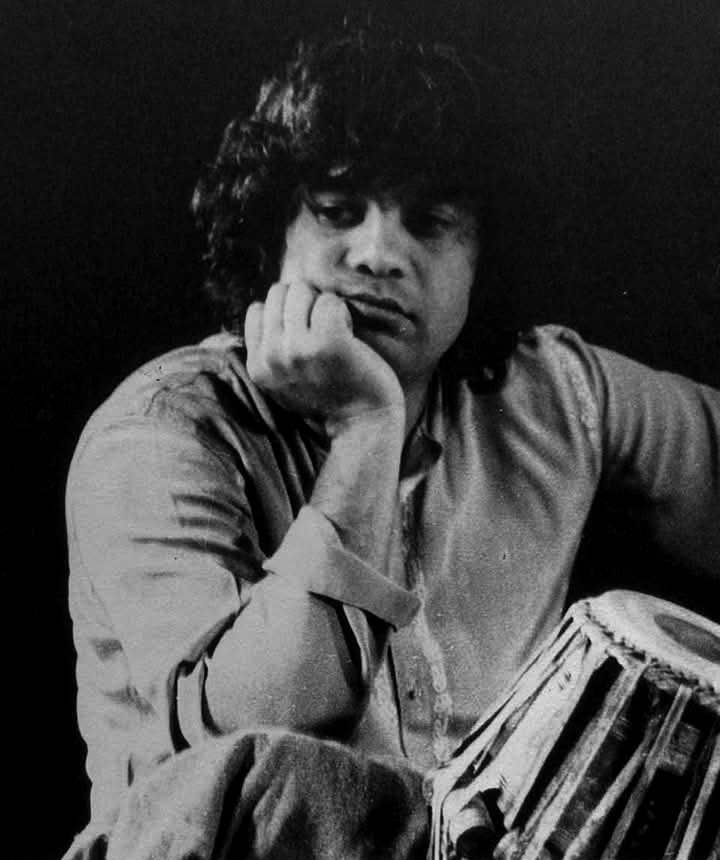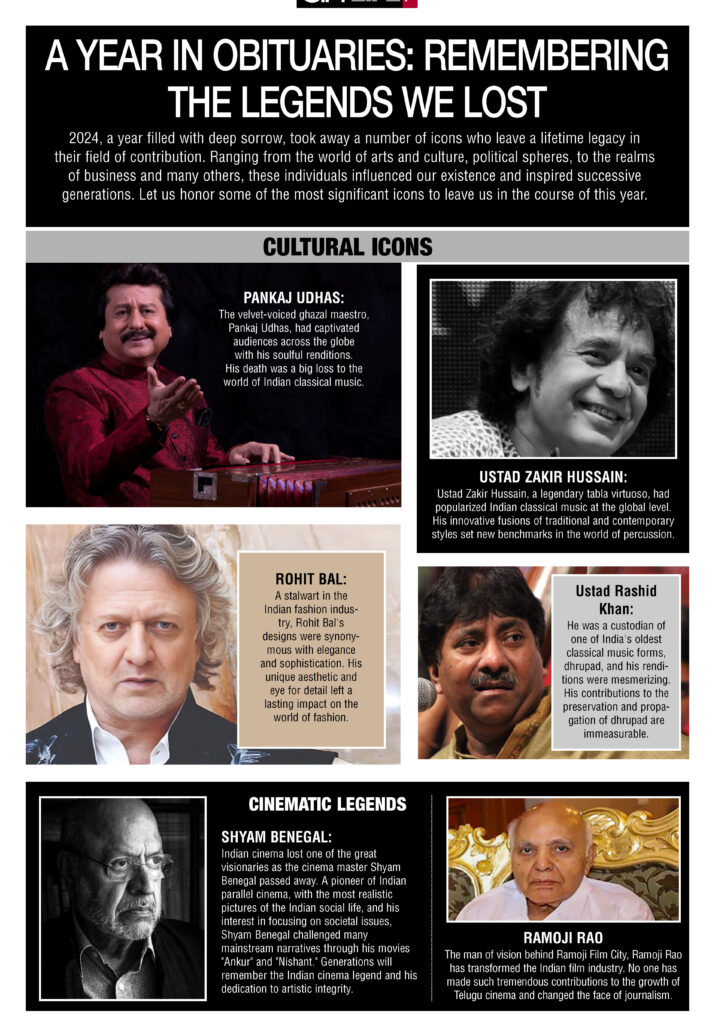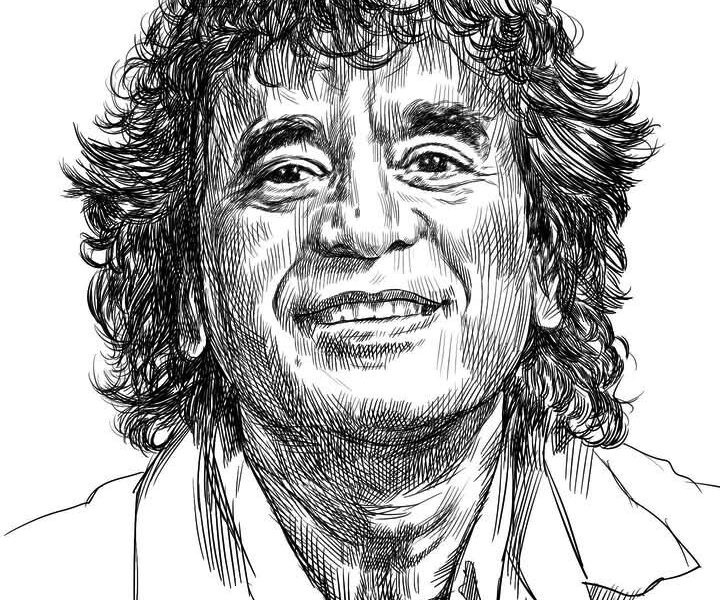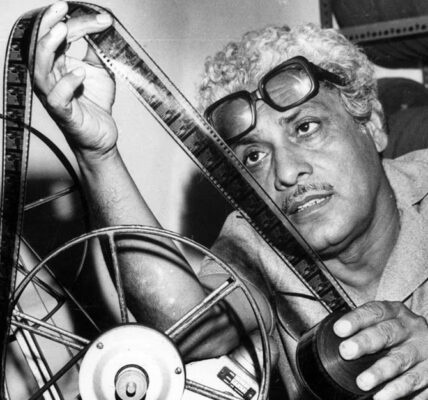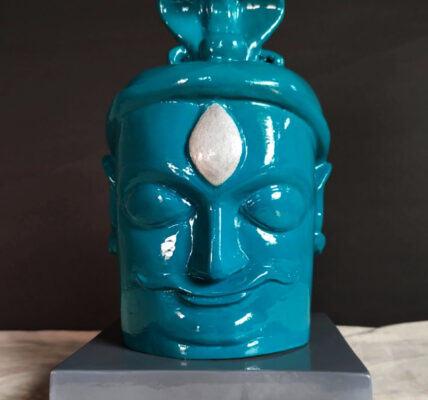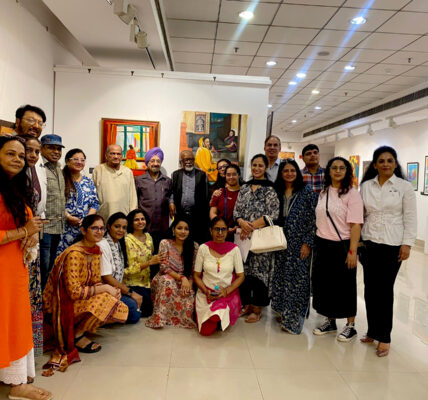Zakir Hussain: The Beat of a Timeless Journey

Zakir Hussain 1951-2024
In the world of rhythm, where beats transcend language and tablas narrate timeless tales, Zakir Hussain emerges as an icon of innovation and devotion. His journey is a symphony of passion, resilience, and an unwavering commitment to his craft. Few artists have achieved what Zakir has: a seamless fusion of tradition and modernity that resonates across generations and cultures. His music is not confined to the boundaries of sound; it carries the essence of centuries-old Indian heritage, blending it with the pulsating beats of the modern world.
To watch Zakir Hussain perform is to witness the universe in motion. His fingers move across the tabla with a precision that feels otherworldly, producing rhythms that seem to echo the heartbeat of life itself. Behind every performance lies a story of discipline, sacrifice, and an unshakable belief in the power of music. Zakir’s life is not just about the mastery of his art; it’s a testament to the power of dedication and the ability of music to transcend barriers, uniting people across continents.
From a prodigious child in Mumbai to an international cultural ambassador, Zakir Hussain’s story is one of inspiration and perseverance. It is a story of a boy who, despite carrying the weight of his father’s legendary name, dared to dream beyond the ordinary and found a way to make his own mark. His life is a melody of emotions-a journey filled with highs and lows, love and longing, challenges and triumphs.
A Legacy in Rhythm: Born on March 9, 1951, in Mumbai, Zakir Hussain was immersed in music from birth. His father, the legendary Ustad Alla Rakha, was not just a maestro but a taskmaster. Zakir’s early life revolved around the tabla, and by the age of seven, he was performing publicly, captivating audiences with his prodigious talent.
But being Alla Rakha’s son was both an honor and a challenge. Zakir carried the heavy weight of expectations, striving to uphold his father’s legacy while forging his own identity. His relentless practice sessions, often leaving his fingers bruised and bleeding, were a testament to his commitment to the craft.
Balancing Academics and Passion: While pursuing his education at St. Xavier’s College, Mumbai, Zakir walked a tightrope between academics and his intense musical training. By the time he turned 19, he realized that his future lay beyond textbooks and lecture halls. He made the bold decision to move to the United States, tabla in hand, ready to take Indian classical music to global stages.
A Bridge Between Cultures: In the U.S., Zakir Hussain became a pioneer of cross-cultural collaboration. In the 1970s, his association with the band Shakti, alongside jazz legend John McLaughlin, broke new ground. Together, they blended Indian classical music with jazz, creating an entirely new genre. Zakir also collaborated with global icons like George Harrison and Mickey Hart, further cementing his role as a cultural ambassador.
Despite his innovative projects, Zakir never abandoned his roots. His tabla spoke the language of centuries-old traditions, even as it adapted to global rhythms.
Composing Soulful Narratives: One of Zakir’s most memorable achievements came in 1988 when he composed the soundtrack for the film “In Custody”, directed by Ismail Merchant. His music became an emotional thread in the film, evoking feelings that transcended the limitations of dialogue. This project was a reflection of Zakir’s ability to merge tradition with storytelling. His compositions didn’t just complement narratives-they amplified them.
Trials and Triumphs: Life as a global musician wasn’t without struggles. Living away from his family and homeland tested Zakir’s emotional strength. However, his tabla became his outlet, expressing the longing and resilience he often carried within. Every challenge enriched his music, infusing it with depth and authenticity.
Championing Indian Classical Music: In 1988, Zakir founded Moment! Records, a platform dedicated to promoting Indian classical music. Through this initiative, he provided a global stage for emerging Indian artists, ensuring that the beauty of this tradition reached younger generations.
Accolades and Humility: Zakir Hussain’s journey is adorned with numerous honors. In 1988, he was awarded the Padma Shri, followed by the Padma Bhushan in 2002-two of India’s highest civilian awards. Despite these accolades, Zakir remained humble, always crediting his father, mentors, and audiences for his success.
For him, music was never about personal glory; it was about serving a larger purpose and bringing people together.
A Maestro Forever Young: Even as he celebrated his 70th birthday, Zakir’s passion for music remained undiminished. His performances continued to mesmerize audiences worldwide, proving that his artistry was as ageless as his tabla’s rhythms.
Conclusion: Zakir Hussain’s life is more than the story of a tabla virtuoso. It is a testament to the transformative power of music, the resilience needed to carry a legacy forward, and the courage to innovate while honoring tradition. In every beat of his tabla, one hears not just sound but emotion, culture, and a timeless journey that inspires generations.
Etched in my soul
It’s hard to accept that someone so extraordinary has left us. Yet, I find solace in knowing that his physical form may be gone, but his art, his rhythm, and his legacy will live on eternally. He will always be present in every beat of tabla, in every note played with devotion.
